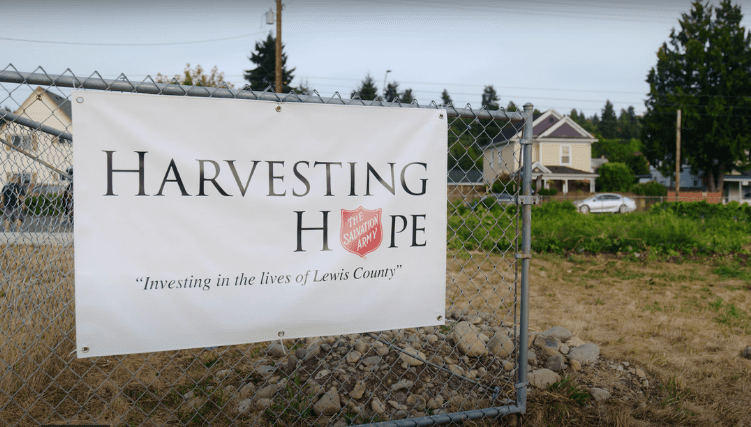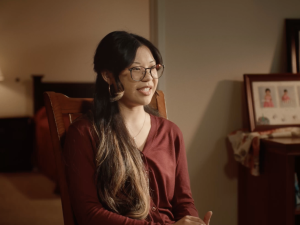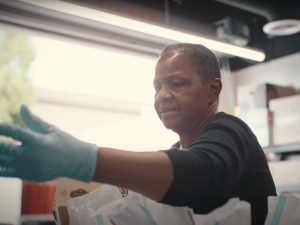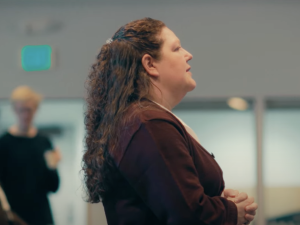Centered between Portland and Seattle, the small city of Centralia, Washington, faces a declining economy and an increase in homelessness, drug abuse and community discontent.
The Salvation Army is responding in an unorthodox way: by maintaining a farm that can complement its food bank and provide children and adults alike an avenue to build healthy work practices and relationships.
Together, Christ is being realized in unexpected ways.
Below is a transcript of the video edited for readability.
Lieutenant Gin Pack: Centralia is the center point between Portland and Seattle. It’s rich in history. At one time, it was a big economic place, but we have seen a decline in job availability [and] in housing availability.
Lieutenant Steve Pack: One thing about our community is that there is food insecurity, unfortunately. If we didn’t exist, there would be a lot of people going hungry.
I’ve never seen a farm of this scale before at any other Salvation Army. It’s maintained daily through mostly our interns that we have. We do get volunteer groups. The high school out here requires all the students to do a certain amount of volunteer hours, so we get volunteers from that.
And then, we also have a relationship with the Youth Corrections Department, and they’ll bring out some of their at-risk or troubled youth. One of our community members tills the garden for us at the beginning and the end of the season.
The day-to-day is mostly our interns. Every single one of them that we’ve had so far [said] this was the first actual job they’ve ever had. They do different weeding. They make sure that the garden is watered. That’s working their time management, problem-solving, goal-setting, as well as just the basic skills of learning how to clock in and out, how long is an appropriate lunch to take.
Lieutenant Gin: When they do leave, they have a letter of recommendation. Our goal is to see them become really great employees.
Brian: I was a drug addict and a dealer, and then I met these cool people down at The Salvation Army, Gin and Steve Peck.
Lieutenant Steve: He said he was done using, and he wanted to do something different. Sitting at home doesn’t do anything for him, but he can feel useful coming to the farm and giving back to the community and give back to the church site, that in his eyes, has helped him so much give back to God.
Brian: Usually, I’m out in the garden helping Carson or Chris, making sure they’re doing the job right. In and out every day.
Lieutenant Gin: He’s maintaining his sobriety, partly because of his relationship with God and then his connection to his community.
The farm program serves emergency food boxes on a weekly basis. It serves the families and the working poor, people that don’t have any income, [and] homeless people.
Lieutenant Steve: They get to walk around our food bank with a personal shopper that shops with them. The garden provides fresh produce to go along with it. Rather than just a can of beans and frozen food, we get fresh vegetables so they can have really good nutrients.
Sasha: We’ve done cooking classes, and we will put recipes in there that they can make those recipes with what they get out of the food bank and out of the garden, and everything as well.
I was homeless with my child, and then we used this particular food bank, first time I’d ever used a food bank. I got my job here. Being on the opposite side of the desk makes you open your mind. I go home happy at the end of the day because I’ve made one person smile or I helped feed one person, and it’s just that one thank you that makes it worth it.
Lieutenant Steve: I hope that more and more food banks start picking up this model because it gives more dignity, more choice with what they’re actually taking, and it creates less waste because you’re not going to take something off the shelf that you’re not going to use.
Lieutenant Gin: Someone that doesn’t have a home can often be sent messages that they’re not welcome, that they’re kind of a burden on society, or that they don’t belong.
Lieutenant Steve: We have it almost like a drop-in center. If it’s cold, they can get warm. If it’s hot, they can cool off. We’ll never turn someone away and not give them food.
Lieutenant Gin: We invite individuals from our community to come in and share a hot meal and just really engage with their neighbors. We wanted to give people a sense of belonging.
The food that comes out of the farm, it’s served. It’s just full circle. Everything comes full circle.
Someone asked us, “What would be your long-term goal for your social services program?” And I said, “To be out of business” because we want to see self-sufficiency. When we train people to be really great employees, then they can have good jobs and end the cycle of poverty.
Brian: I’ve learned a new way. I’ve started learning about God, and he’s given me more than drugs or the streets ever could have.
Lieutenant Gin: There is hope that you can change. There is hope that things will get better.
Sasha: There’s room at God’s table for everyone, and we want you to be part of that.
Do Good:
- See more videos like this in our video feed.
- Are you a Do Gooder, someone who cares about bringing goodness into the life of your family and community? Subscribe to The Do Gooders Podcast to be inspired by those doing good and find tangible tips for simple actions you can take today.
- Did you know The Salvation Army served more than 23 million Americans last year fighting hunger, homelessness, substance abuse and more—all in a fight for good? Where can you help? Take our quiz to find your cause and learn how you can join in today.











